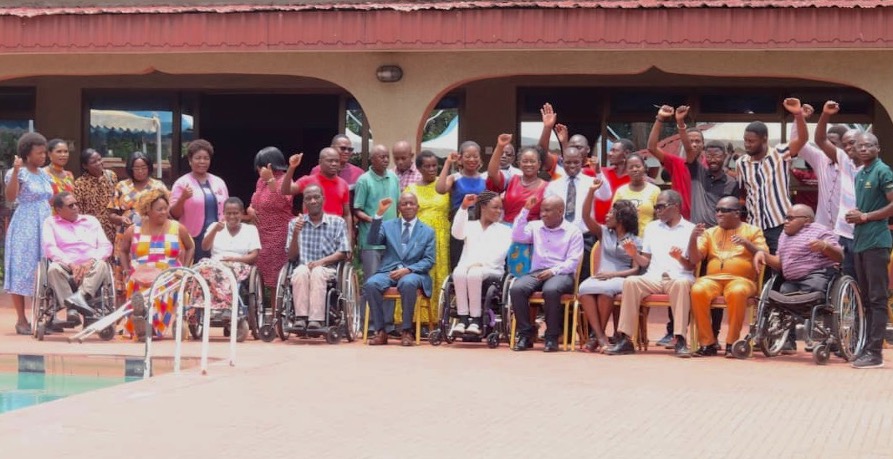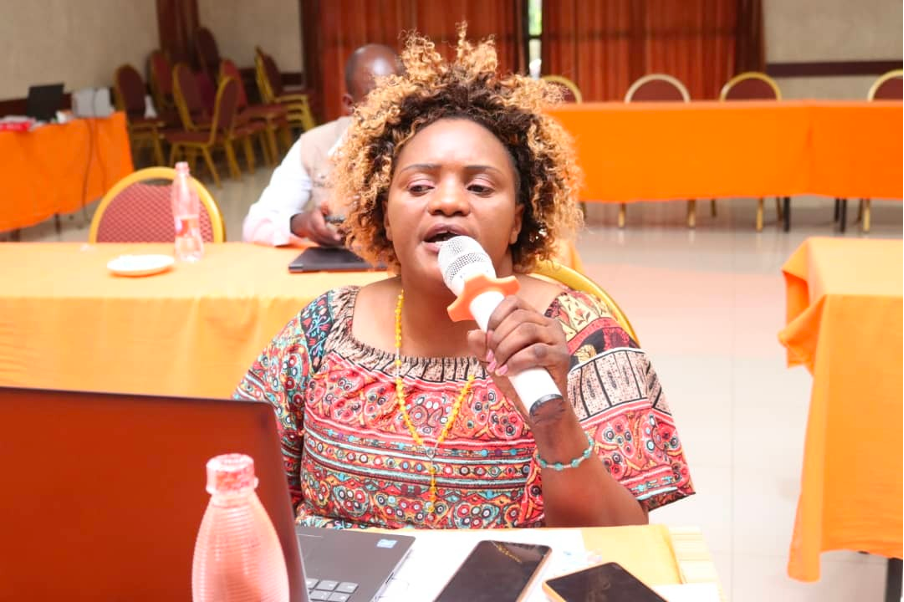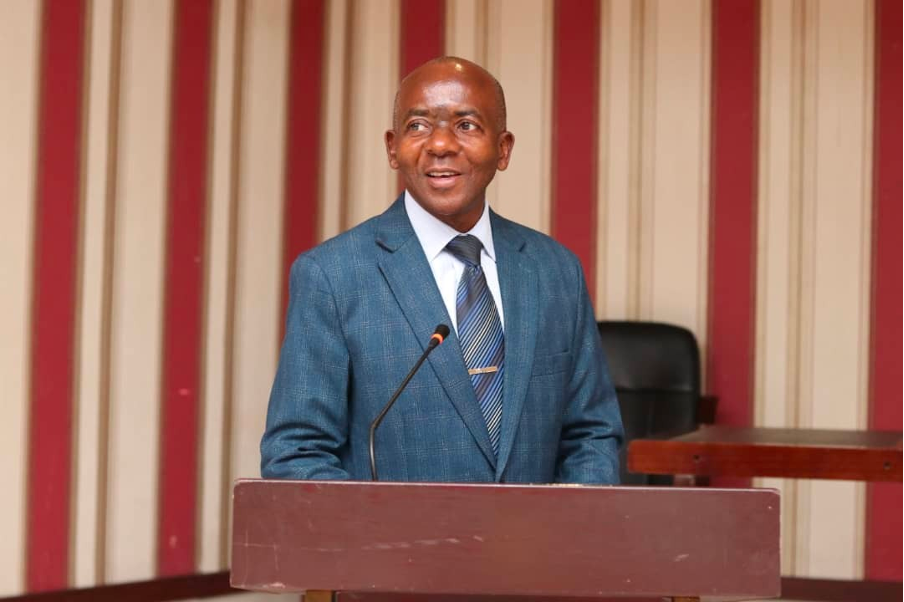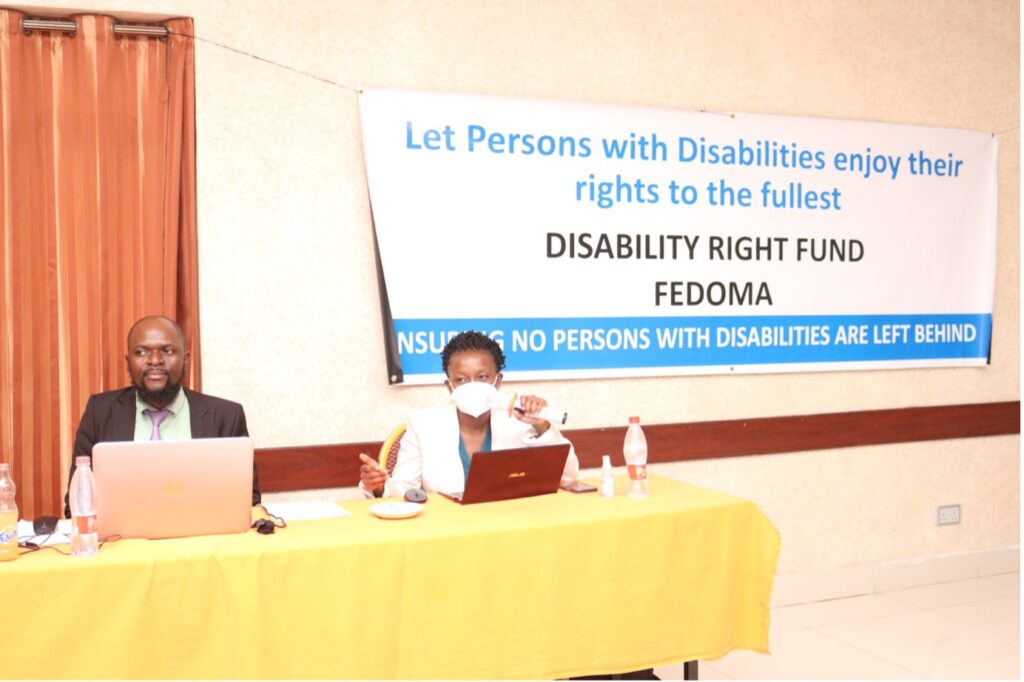Deepening Diversity for a More Inclusive Malawi
Blog by Chrissy Zimba, Program Officer for Malawi
All photos by Eve Gadama, FEDOMA

The Disability Rights Fund’s (DRF) team was thrilled to co-host its second grantee convening in Malawi in November 2022 with the Federation of Disability Organizations in Malawi (FEDOMA), the umbrella body of Organizations of Persons with Disabilities (OPDs). DRF typically hosts grantee convenings every two years for each of its target countries, but logistical challenges, including lockdowns due to COVID-19, led to delays. The 2022 grantee convening presented an opportunity for DRF’s Malawi grantees to increase their knowledge on human rights advocacy and lobbying strategies and to highlight the successes and achievements generated by DRF and its sister fund’s, the Disability Rights Advocacy Fund, financial support.

In appreciation of DRF’s funding to organizations of persons with disabilities (OPDs) in Malawi, Stella Chisangwala Nkhoma, the National Coordinator for the Malawi Human Rights for Women and Girls with Disabilities (HRWGDs), remarked:
“DRF has enhanced our capacity to advocate for SOGIESC and gender diversity. Malawi Human Rights for Women and Girls with Disabilities is now recognized, and we are a member of the committee on monitoring a World Bank Project called Governance Enable Service Delivery. Through technical support from DRF, we are learning how we can continue to advance and advocate for the rights of persons with disabilities who identify as LBT.”
DRF and DRAF started funding Malawi in 2014, awarding five grantees. Since this initial funding, the portfolio for Malawi has grown to 18 grantees in the country today. The Funds’ grantmaking in Malawi has contributed to building a more diverse disability movement by resourcing both the national and grassroots organizations representing emergent and marginalized groups, such as persons with albinism, youth with disabilities, Deaf-Blind persons, women and girls with disabilities, and persons with disabilities living in rural Malawi. This focus on diversity has strengthened inclusion in Malawi’s disability movement. Observing this growth in the number of OPDs in Malawi, the Director for the Department of Disability and Elderly Affairs, Gideon Kachingwe, shared that OPDs must work together to advocate for the rights of persons with disabilities, assuring participants that the government of Malawi was committed to promoting disability rights. He further urged OPDs to advocate for persons with disabilities from marginalized identities. We welcome this messaging given our emphasis on intersectional funding in line with DRF’s Gender Guidelines Implementation Plan, our compass to steer our work in gender transformation.

Gideon Kachinge also shared the government’s plans to operationalize the Disability Trust Fund, which was established by the Disability Act to support the implementation of disability programs and the provision of disability services in Malawi.
As a result of the continued advocacy from OPDs with DRF’s funding to collect disability-inclusive data, another remarkable milestone was witnessed: The 2018 Malawi Population and Housing Census incorporated the Washington Group Questions to collect disability-disaggregated data. The 2018 Malawi Population and Housing Census Report NSO 2020 data revealed there are over 1.5 million persons with disabilities in Malawi aged five and older. While it is impressive to see the growth of OPDs over the years, funding and capacity remain an issue. Thanks to DRF’s funding in Malawi, more marginalized and emerging organizations, including rural OPDs, now have access to resources to advocate for disability rights and to push forward the movement’s agenda.
Simon Munde, FEDOMA’s acting executive director, shared his appreciation for DRF’s participatory grantmaking model in Malawi, which has amplified the voices of persons with disabilities over the years. “Not only is DRF focused on funding OPDs, but they have also supported FEDOMA in its recovery process after many donors lost trust in our organization by ensuring our governance structure is well instituted,” he said.
DRF’s funding in Malawi supported Deafbling persons to access the electoral process by translating voter education materials for the 2019 tripartite elections into braille and incorporating tactile ballots.
DRF’s funding also strengthened Malawi’s commitments for the Global Disability Summit (GDS) to shift harmful attitudes and behaviors and prevent violence against persons with albinism. Furthermore, DRF’s funding supported the movement to influence the development of GDS22 commitments adopted by the government of Malawi. The GDS22 commitments have so far proved to be an effective tool for the realization of disability rights as evidenced by the progress made in the timely implementation of some of the commitments, including the revision of the 2006 National Disability Policy and the development of the Inclusive Education Policy.

The Malawi grantee convening was timely and offered an opportunity for consultations that informed the drafting of Malawi’s Alternative Report to the Committee on Economic, Social, and Cultural Rights (CESCR). The session was co-facilitated by the International Disability Alliance’s Human Rights Officer for Treaty Bodies, Mirriam Nthenge and Dr. Enock Chilemba of Chancellor College Disability Rights Clinic. The Alternative Report was submitted to the CESCR Committee in January 2023 in response to Malawi’s initial State Report. DRF’s support for the disability movement in Malawi to facilitate the submission of the civil society organization’s Alternative Report to the CESCR Committee is part of its ongoing strategy to support global advocacy for persons with disabilities to participate in the monitoring of human rights mechanisms to advance disability rights.
All in all, we are thrilled that the 2022 Malawi grantee convening provided a platform for grassroots, emergent, and rural-based organisations of persons with disabilities to have their voices heard, break the silos, and contribute to building a more open and inclusive society!